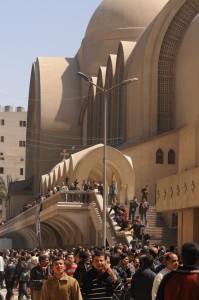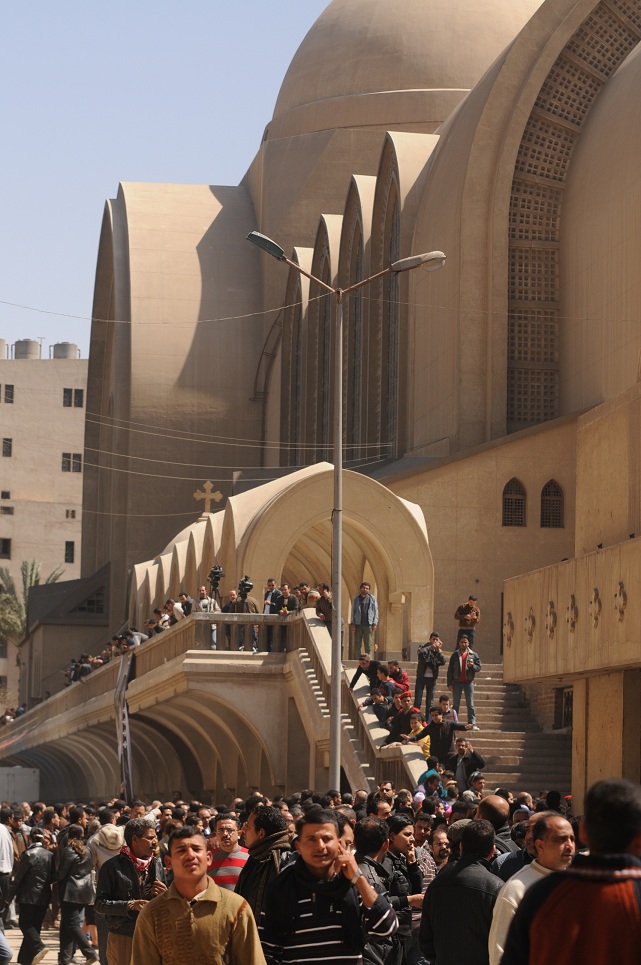
Laurence Underhill / DNE
The Coptic Orthodox Church released a finalised list of the 17 nominees to succeed the deceased Pope Shenouda III as the church’s 118th Pope. The council overseeing elections will welcome those eligible to vote in the election to challenge the nomination of the 17 of monks and bishops.
Following a three day church-wide fast, a nominations committee will begin deliberations to narrow the 17 nominees down to between five and seven, based on those deemed most eligible for the position.
From 19 November to 21 November, another church-wide fast will commence and on 24 November the 2,405 voters from inside and outside Egypt will submit ballots, choosing from the five to seven nominees that remain.
After a third fast on 26-29 November, a liturgical service will be held on 2 December in the Cathedral of St. Mark in Abbaseya, and the top three nominees following the papal election will have their names placed at the altar, where a blindfolded child will select the name of the next Pope of the Coptic Orthodox Church.
The list of nominees includes seven bishops and ten monks. Debate concerning the eligibility of certain candidates has been brewing within the church long before a list had even been released. Many factions within the Church maintain that in keeping with canon law, diocesan bishops should not be eligible for the papal seat, as they are bound to the dioceses they serve.
Church bodies such as those of the Clergy Synods of the British Orthodox Church and of the Diocese of Los Angeles, Southern California, and Hawaii have stated “a diocese bishop should not be considered for election to the Patriarchate of Alexandria at this time.” The sentiment has been echoed by other prominent church figures such as Bishop Youssef of the Southern United States and Bishop Demetrios of Malawi.
Those diocesan bishops that have been nominated for the papal seat include controversial figure Metropolitan Bishoy of Damietta, Bishop Pafnotious of Samalout, and Bishop Kyrillos of Milan.
“The papal selection process, albeit lengthy, has been carried out thus far with integrity, transparency and inclusion of the broad spectrum of the Coptic Orthodox Church both inside and outside Egypt,” said Bishop Angaelos, General Bishop of the Coptic Orthodox Church in the United Kingdom in a statement. “As we approach the selection of the new pope we are confident that this process has been carried out for centuries, and is not merely based on democratic election but primarily on a collective prayerfulness and faith in God’s choice.”
The current procedure is supported by bylaws that were set in place in 1957, and represent a combination of various methods used by the church during its long history. The current practice has been used to select Pope Kyrillos VI and Pope Shenouda III.




